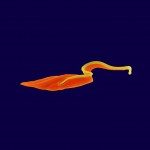Link to Pubmed [PMID] – 15853885
Mol. Microbiol. 2005 May;56(4):990-1003
During erythrocyte invasion, the Plasmodium falciparum Ring-infected erythrocyte surface antigen (RESA) establishes specific interactions with spectrin. Based on analysis of strains with a large chromosome 1 deletion, RESA has been assigned several functions, none of which is firmly established. Analysis of parasites with a disrupted resa1 gene and isogenic parental or resa3-disrupted controls confirmed the critical role of RESA in the surface reactivity of immune adult sera on glutaraldehyde-fixed ring stages. Absence of RESA did not influence merozoite invasion or erythrocyte membrane rigidity, was associated with a modest increase of cytoadhesion to CD36 under conditions of flow, but resulted in marked susceptibility to heat shock. resa1-KO-infected erythrocytes were prone to heat-induced vesiculation like uninfected erythrocytes, whereas parental or resa3-KO infected erythrocytes remained undamaged. Furthermore, a 6 h exposure of ring stages at 41 degrees C resulted in 33% culture inhibition of resa1-KO parasites while marginally impacting parental and resa3-KO parasite growth. This points to a role for RESA in protecting the infected erythrocyte cytoskeleton during febrile episodes. Infection patterns of resa1-KO and parental parasites in Saimiri sciureus indicated that RESA does not, at least on its own, modulate virulence in the squirrel monkey, as had been previously suggested.

